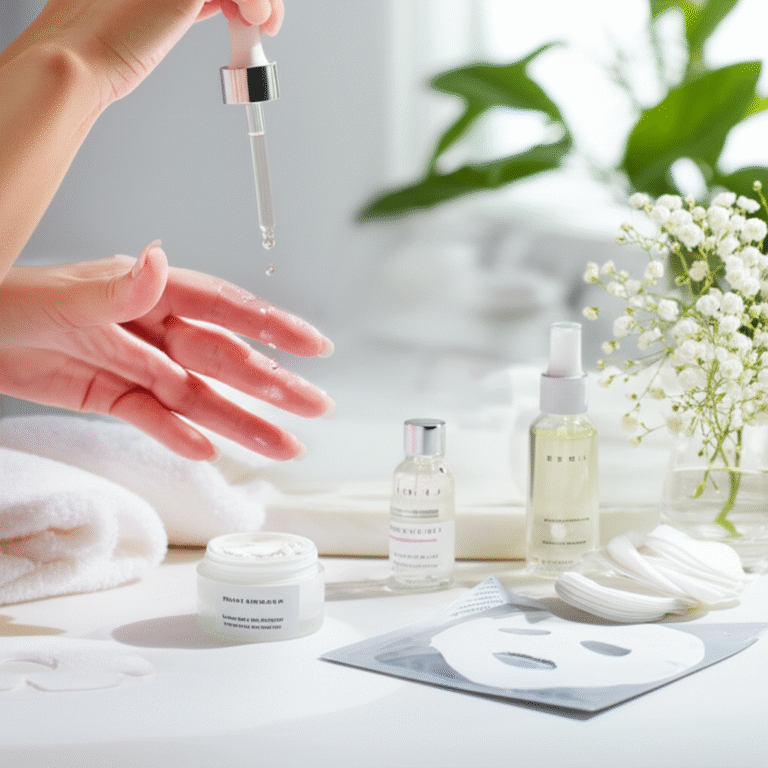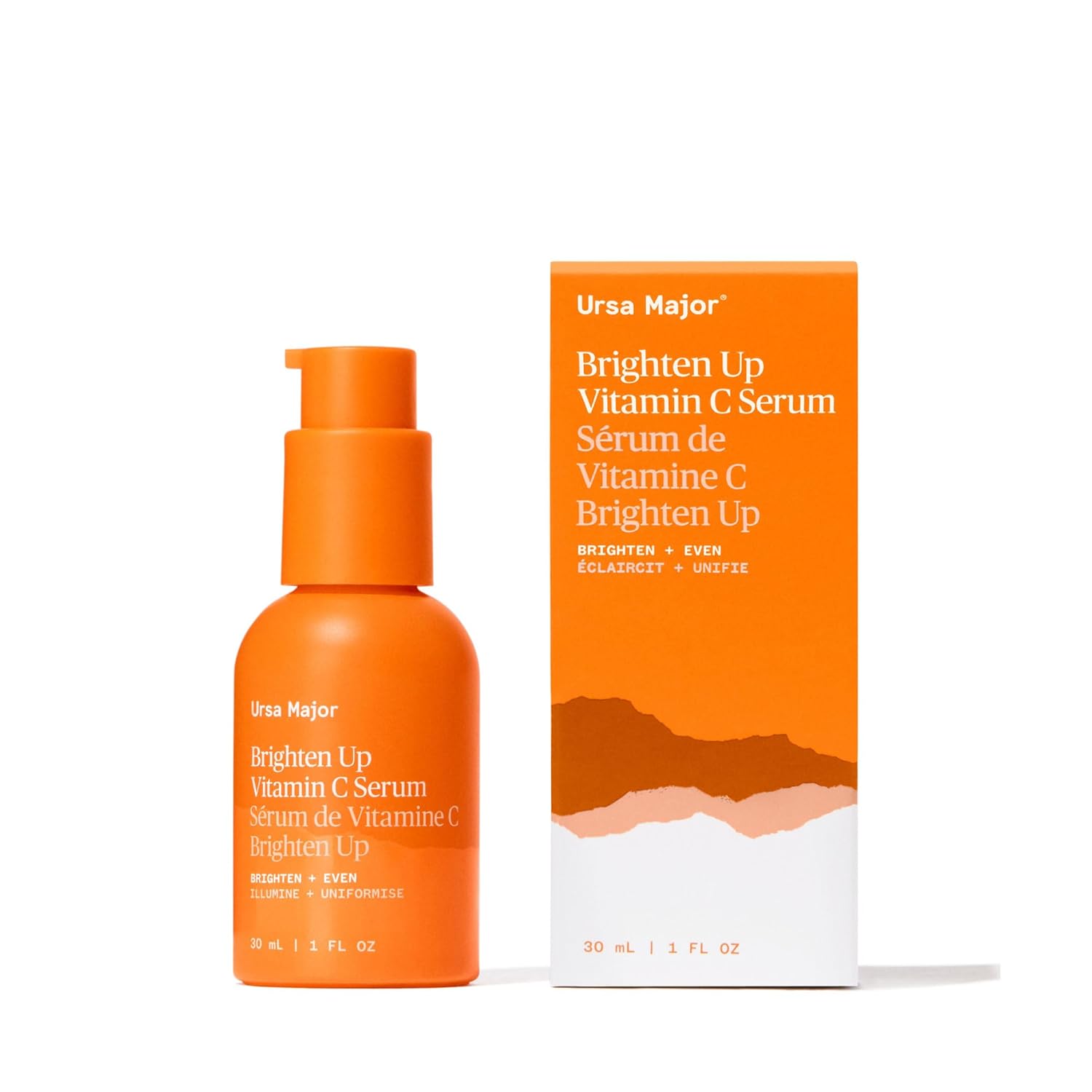Discover the timeless secrets of biblical skin care for naturally radiant, healthy skin. This guide offers simple, effective, and affordable routines inspired by ancient wisdom to boost your glow from the inside out. Learn proven essential beauty practices suitable for every beginner.
Are you tired of complicated skin care routines and expensive products that promise the world but deliver little? Many of us feel overwhelmed by the endless array of creams, serums, and treatments available today. It’s easy to get lost in the jargon and the constant push for the next big thing, especially when you’re just starting. But what if true beauty and healthy skin could be found in simpler, time-tested practices? What if the most effective methods were rooted in wisdom passed down through generations? You’re in the right place to discover those very secrets! We’re going to explore how ancient practices, often found in biblical texts, can offer a powerful foundation for your skin care journey. Get ready to unlock a natural, achievable glow that feels as good as it looks.

Biblical Beauty: Skincare Inspired by God’s Design
A Faith-Based Guide to Radiant Skin and Self-Care
- Price: $14.99
- Format: Paperback
- Shipping to Bangladesh: $172.61
- Return Policy: 30-day refund/replacement
- Product Features: Step-by-step skincare routines, seasonal advice, ingredient spotlight, and biblical principles
- Language: English
- Publication Date: November 29, 2024
- Dimensions: 5.83 x 0.08 x 8.27 inches
- ISBN-13: 979-8303704787
The Enduring Allure of Biblical Skin Care

The concept of “biblical skin care” isn’t about using ancient artifacts as a face mask (though some ancient ingredients are indeed amazing!). Instead, it’s about understanding principles of health, purity, and natural well-being that are deeply embedded in biblical narratives and traditions. These texts, spanning thousands of years, often highlight practices related to cleanliness, diet, and the use of natural elements like oils and water, all of which are foundational to healthy skin. Think about the emphasis on purity and washing in many spiritual traditions; this directly translates to healthy hygiene, a cornerstone of good skin care.

These are not fad treatments but enduring practices that focus on holistic health. They emphasize what you put into your body as much as what you put on your skin. This approach can feel incredibly liberating, especially for beginners who are seeking a straightforward, effective way to care for their complexion without unnecessary complexity or excessive spending. We’ll delve into specific practices and ingredients that have historical significance and modern-day relevance for achieving that sought-after healthy glow.
Historical Roots: Wisdom from Ancient Texts
The Bible, a collection of sacred texts, often alludes to practices that supported health and well-being, including skin care. While not a dermatology textbook, the narratives offer insights into a lifestyle that valued cleanliness, natural remedies, and nourishment. The ancient world, lacking modern chemical formulations, relied heavily on what nature provided. Essential oils, plant extracts, and simple cleansing rituals were the norm. These methods were not just about vanity but about health and spiritual purity, reflecting a holistic view of the body.
For instance, references to anointing with oils, bathing, and the importance of a pure diet are recurring themes. These practices were integral to daily life and spiritual observances, suggesting a deep connection between inner purity and outer appearance. Understanding these historical contexts helps us appreciate the wisdom that has been passed down and how it can be adapted for our contemporary lives.
Key Ingredients and Practices in Biblical Times
Several natural ingredients and practices were prominent in ancient times and continue to be celebrated in modern skin care for their beneficial properties. These are the building blocks of “biblical skin care” – simple, effective, and readily available. Embracing them can lead to a noticeably healthier complexion.
Ancient Wonders for Modern Skin
- Olive Oil: Extensively mentioned in the Bible, olive oil was used for anointing, cooking, and in various medicinal applications. It’s rich in antioxidants and fatty acids, making it an excellent moisturizer and anti-inflammatory agent. Its emollient properties help to soften and hydrate the skin, reducing dryness and promoting elasticity. For skin care, extra virgin olive oil is often preferred due to its higher nutrient content. It can be used as a cleanser, moisturizer, or as an ingredient in DIY masks.
- Honey: Another treasured natural product, honey has been used for centuries for its healing and antibacterial properties. Its humectant nature means it draws moisture from the air to the skin, keeping it hydrated. Its antiseptic qualities can help with minor skin irritations and acne. Historically, honey was applied to wounds and skin ailments. Today, raw or manuka honey are excellent choices for skin application due to their potent beneficial compounds.
- Frankincense and Myrrh: These aromatic resins were highly valued in ancient times, often mentioned in relation to precious gifts and medicinal uses. Both frankincense and myrrh possess potent anti-inflammatory, antiseptic, and astringent properties. Frankincense is known for its skin-rejuvenating benefits, helping to heal scars and even out skin tone. Myrrh is effective in combating bacteria and can soothe irritated skin. In modern skin care, essential oils derived from these resins are used in anti-aging serums and treatments. You can find them in reputable skin care products designed for healing and rejuvenation.
- Milk and Buttermilk: Ancient texts and historical accounts suggest the use of milk and dairy products in baths and cleansing rituals. Milk contains lactic acid, a gentle alpha-hydroxy acid (AHA), which helps to exfoliate the skin, removing dead skin cells and revealing brighter, smoother skin. It also contains vitamins and minerals that nourish the skin. Cleopatra’s famous milk baths are a testament to the enduring belief in milk’s beautifying properties.
- Water and Cleanliness: The emphasis on washing and ritual purification in biblical contexts highlights the fundamental importance of cleanliness for health and well-being. Regular washing removes dirt, oil, and pathogens, which are crucial for preventing breakouts and maintaining healthy skin barrier function. This simple act is the bedrock of any effective skin care routine.
Building Your Biblical Skin Care Routine: A Beginner’s Guide
Creating a skin care routine doesn’t have to be complicated. By focusing on a few key principles and gentle, natural ingredients, you can build a routine that is both effective and easy to follow. This step-by-step approach ensures you cover the essentials without feeling overwhelmed. Let’s start with the basics.
Step 1: Gentle Cleansing
The most important step in any skin care routine is cleansing. This removes impurities, excess oil, and makeup, preparing your skin for other treatments and allowing it to breathe. Following the principle of purity, a gentle cleanser is key.
Cleansing Options:
- Oil Cleansing Method (OCM): This method uses oils (like olive oil or jojoba oil) to dissolve excess sebum, dirt, and makeup. It sounds counterintuitive, but the “like dissolves like” principle works wonders, even for oily skin. It’s incredibly gentle and doesn’t strip the skin’s natural oils.
- How to: Massage a small amount of oil onto dry skin. Use a warm, damp washcloth to gently wipe away the oil. Rinse and pat dry.
- Honey Cleanser: Raw honey is a natural humectant and antibacterial agent. It cleanses without stripping moisture.
- How to: Dampen your face, apply a small amount of honey, gently massage, and rinse thoroughly with warm water.
- Gentle Soap (Use Sparingly): If you prefer a more traditional wash, opt for a mild, natural soap with few additives. Be cautious, as harsh soaps can disrupt the skin barrier.
Step 2: Hydration and Nourishment
After cleansing, it’s essential to replenish moisture and nourish your skin. This is where natural oils and balms shine.
Nourishing Your Skin:
- Pure Oils as Moisturizers: A few drops of high-quality, cold-pressed oils can moisturize and protect your skin.
- For Dry Skin: Extra virgin olive oil or avocado oil.
- For Oily/Acne-Prone Skin: Jojoba oil (mimics natural sebum) or rosehip oil.
- For Sensitive Skin: Sweet almond oil or chamomile oil.
- DIY Honey Mask: A weekly mask can provide an extra boost of hydration and healing.
- Recipe: Mix 1 tablespoon of raw honey with 1 teaspoon of milk or yogurt. Apply to clean skin, leave for 15-20 minutes, and rinse.
Step 3: Protecting Your Skin (Sun Protection)
While ancient texts didn’t discuss SPF in the modern sense, sun protection was understood through seeking shade and covering up. Protecting your skin from excessive sun exposure is crucial for preventing premature aging and skin damage.
Sun Protection Strategies:
- Seek Shade: The simplest and most effective method.
- Tip: Plan outdoor activities for cooler parts of the day.
- Wear Protective Clothing: A wide-brimmed hat and long sleeves offer excellent protection.
- Natural Sunscreens (Limited Protection): While not potent like modern sunscreens, some natural oils like red raspberry seed oil and carrot seed oil are often cited as having low SPF properties, but should not be relied upon as primary sun protection according to dermatological advice. For reliable protection, a broad-spectrum sunscreen with SPF 30 or higher is recommended by dermatologists. Organizations like the Skin Cancer Foundation provide comprehensive guidance on sun safety.
Holistic Approach: Diet and Lifestyle
True beauty, as often implied in biblical wisdom, is holistic. It encompasses not just topical application but also internal well-being. What you consume and how you live profoundly impact your skin’s health and appearance.
Nourishment from Within
Ancient traditions understood the power of food. A diet rich in vitamins, minerals, and antioxidants supports skin regeneration and defense. Focusing on whole, unprocessed foods is key.
Dietary Recommendations:
- Hydration: Drinking plenty of water is fundamental for skin elasticity and flushing toxins.
- Antioxidant-Rich Foods: Fruits and vegetables like berries, leafy greens, and tomatoes are packed with vitamins that fight free radical damage.
- Healthy Fats: Found in nuts, seeds, avocados, and fatty fish, these fats are essential for maintaining a healthy skin barrier.
- Lean Proteins: Necessary for skin repair and collagen production.
Lifestyle Factors
Beyond diet, certain lifestyle habits contribute significantly to skin health:
- Adequate Sleep: When you sleep, your body repairs itself, including skin cells. Lack of sleep can lead to dullness and premature aging.
- Stress Management: Chronic stress can trigger inflammation and hormonal imbalances, negatively impacting the skin. Practices like prayer, meditation, or spending time in nature can help.
- Regular Exercise: Improves circulation, delivering oxygen and nutrients to skin cells and helping to carry away waste products.
Benefits of Biblical Skin Care Principles
Adopting principles inspired by biblical skin care offers a wealth of advantages, particularly for those new to skincare or seeking simpler, more natural solutions.
Key Advantages
- Simplicity: Focuses on a few core practices and natural ingredients, making it easy to understand and implement.
- Pros: Less overwhelming, shorter routines, fewer products to manage.
- Cons: May require DIY preparation for some aspects, less instant gratification than some chemical treatments.
- Cost-Effectiveness: Utilizes readily available and often inexpensive natural ingredients like olive oil and honey.
- Pros: Budget-friendly, saves money compared to high-end skincare.
- Cons: Quality of natural ingredients can vary, sourcing the best may require a little research.
- Natural and Gentle: Relies on ingredients known for their nourishing and non-irritating properties, suitable for sensitive skin types.
- Pros: Reduced risk of irritation, supports the skin’s natural barrier.
- Cons: May not be potent enough for severe skin conditions without professional advice.
- Holistic Approach: Integrates internal health (diet, lifestyle) with external care for overall well-being and radiant skin from within.
- Pros: Promotes overall health, addresses root causes of skin issues.
- Cons: Requires commitment to lifestyle changes, results might take longer to appear.
- Sustainability: Often involves using fewer processed products or making your own, which can be more environmentally friendly.
- Pros: Reduced waste, supports natural sourcing.
- Cons: DIY products have shorter shelf lives and require proper storage.
Here’s a quick look at how some key ancient ingredients compare to modern skincare staples for moisturizing:
| Biblical Ingredient | Primary Benefit for Skin | How it Works | Modern Equivalent/Usage |
|---|---|---|---|
| Olive Oil | Deep Moisturization, Antioxidant | Rich in fatty acids (oleic acid) and antioxidants (Vitamin E), softens skin, reduces inflammation. | Used in natural moisturizers, cleansers (oil cleansing), and DIY masks. Similar fatty acid profiles found in linoleic acid-rich oils like sunflower or safflower oil. |
| Honey (Raw) | Hydration, Antibacterial | Humectant (draws moisture), contains enzymes and antioxidants with antimicrobial properties. | Manuka honey is highly prized for potent antibacterial action. Found in natural masks, serums, and cleansers targeting acne and hydration. |
| Milk | Exfoliation, Soothing | Contains lactic acid (gentle AHA) for exfoliation, fats and proteins to soothe and moisturize. | Lactic acid is a common ingredient in chemical exfoliants and moisturizing lotions. Used in cleansers and masks for gentle exfoliation. |
Addressing Common Beginner Concerns
It’s natural for beginners to have questions. Let’s tackle some common concerns about biblical and natural skin care.
Frequently Asked Questions
-
Q1: Is biblical skin care just about historical practices, or can I use these ingredients today?
A1: Biblical skin care is about drawing wisdom from ancient practices and ingredients that are still highly relevant today. Ingredients like olive oil, honey, and essential oils derived from frankincense and myrrh are widely available and beneficial for modern skincare. You absolutely can and should use them!
Q2: I have oily skin. Can I still use olive oil for cleansing?
A2: Yes, you can! The oil cleansing method works on the principle of “like dissolves like.” Oil cleansing helps break down and remove excess sebum (your skin’s natural oil) and impurities without stripping your skin. For oily skin, lighter oils like jojoba or grapeseed oil are recommended, but olive oil can also work effectively. Start with a small amount and see how your skin reacts.
Q3: How often should I use a honey mask?
A3: A honey mask can typically be used once or twice a week. It’s a gentle way to hydrate and nourish your skin. If your skin feels good and you see positive results, you can stick with that frequency. If you notice any dryness or irritation, reduce usage.
Q4: Are there any natural ingredients that offer sun protection?
A4: While some natural oils like red raspberry seed oil and carrot seed oil are anecdotally reported to have low SPF properties, they are NOT a substitute for a broad-spectrum sunscreen. True, reliable sun protection comes from modern formulations that block UVA and UVB rays. For effective sun safety, always use a sunscreen with SPF 30 or higher, as recommended by dermatologists and health organizations.
Q5: What if I have sensitive skin? Are these natural ingredients safe?
A5: Natural ingredients are often gentler, but sensitivities can still occur. It’s always wise to do a patch test before applying any new ingredient to your face. Apply a small amount to your inner arm or behind your ear and wait 24 hours to check for any reaction. Olive oil, honey, and jojoba oil are generally well-tolerated, but individual reactions vary.
Q6: How can I incorporate frankincense or myrrh into my routine if I don’t want to use essential oils directly?
A6: Frankincense and myrrh are often found in skincare products. Look for cleansers, serums, or moisturizers that list these ingredients, particularly if formulated for anti-aging or skin repair. Ensure the product uses essential oils derived from these resins in appropriate, safe concentrations. Always check ingredient lists and consider products from reputable brands that prioritize skin safety.
Q7: My skin feels tight after washing with soap. What should I do?
A7: The “tight” feeling often indicates that the soap has stripped your skin of its natural oils, disrupting its protective barrier. This is a sign to switch to a milder cleansing method. Try the oil cleansing method or a gentle honey cleanse as described earlier. Immediately follow up with a natural oil moisturizer to rehydrate and protect your skin. It might take a few days for your skin to recover its natural balance.
End Remarks
In conclusion, biblical skin care offers a simple yet powerful approach to achieving healthy, radiant skin by embracing natural, time-tested ingredients and practices. By incorporating elements like olive oil, honey, and essential oils into your routine, you can nurture your skin from the inside out while enjoying the benefits of holistic, effective skin care. Whether you’re a beginner or someone looking for a more straightforward skincare regimen, these ancient practices can provide the foundation for beautiful, glowing skin.
Remember, achieving your best skin doesn’t require complicated routines or expensive products. It’s all about consistency, understanding your skin’s needs, and working with nature’s finest ingredients. By following this timeless approach, you’ll be well on your way to unlocking your skin’s natural glow and radiance.



